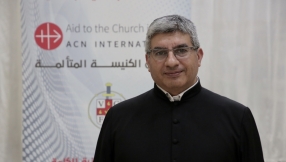
As both Westminster and Holyrood consider their respective proposals to legalise assisted dying, both supporters and opponents of the bill look to Canada to see how such legislation could play out.
Canada introduced Medical Assistance In Dying (MAID) in 2016 and accounts for just under five per cent of all deaths in the country.
One of the concerns of opponents of assisted suicide is that it puts vulnerable people at risk of being killed. Such fears where shown to have validity this week, when Canada’s National Post covered the case of an elderly woman with dementia whose family requested she die by assisted suicide.
The Post writes, “A frail woman in her late 80s with dementia received MAID after a family member ‘brought forward’ a request for an assisted death, a new report reveals.
“The woman’s life was ended after a MAID provider deemed the woman had given her final expressed consent to proceed, based on her ability to repeat a question and squeeze the provider’s hand.”
The report in question came from the Office of the Ontario Chief Coroner’s MAID Death Review Committee. The case of the elderly woman was one of half a dozen raised in the report that questioned whether proper assessments are being undertaken to ensure that those subject to MAID have the capacity to consent to the ending of their lives.
Dr Ramona Coelho, a family physician based in London, Ontario, said the cases demonstrated the dangers of MAID to the vulnerable.
Writing in the British Medical Journal, she said, “While MAID was meant to relieve intolerable suffering when no alternatives remained, it instead puts vulnerable people at risk, becoming a path of least resistance when barriers to care exist, preying on fear of being a burden and often overlooking supports that could genuinely alleviate suffering.”
A legal opinion put together by Tom Cross KC, on behalf of The Christian Institute, has suggested that both the Scottish and Westminster bills proposing assisted suicide could fall foul of the European Convention on Human Rights, as they put the right to life of people with disabilities at risk.













